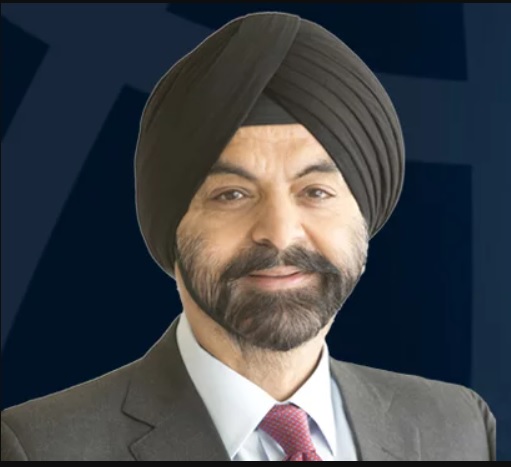Between 2024 and 2030, the World Bank expects to significantly boost its financing through public and private sector channels for methane reduction

FinTech BizNews Service
Mumbai, December 6, 2023: The World Bank is taking bold action to decisively bend the methane emission curve, announcing its intent to launch at least 15 country-led programs in the next 18 months. These programs will aim to slash up to 10 million tons of methane (over investment lifespans).
Addressing methane emissions is a cost-effective way to reduce the dangerous rise in global temperatures and support billions of people on the front lines of climate change. It is essential to the World Bank’s impact-focused climate action plan and its vision of creating a world free of poverty on a livable planet.
The new national programs build on successful pilots that have delivered transformative solutions for rice production, livestock operations, and waste management. These interventions have improved water management of rice paddies and rice straw composting, supported sustainable livestock management through advanced food practices, selective breeding, and better manure treatment; and diverted organic waste from landfills and more efficiently managed biogas.
Deploying the best available technologies, methane emissions from rice production can be reduced by up to 40%, for livestock by up to 30%, and for waste by up to 80%.
Methane represents about 19% of global greenhouse gas emissions. Rice production accounts for 8%, livestock 32%, and waste 18% of all human-driven methane emissions.
Across the spectrum, this comprehensive approach to methane reduction achieves triple wins: abating emissions, enhancing resilience, and empowering livelihoods.
Methane is 80 times more dangerous than carbon dioxide when it comes to warming the planet, making it a major driver of climate change. Yet, it is less understood and less prioritized than carbon dioxide. Finance for methane abatement is alarmingly low, accounting for less than 2% of global climate finance.
The Bank will also support early interventions where methane emissions are set to rise exponentially, inform policy making and country engagements through analytics, and unlock financing. Between 2024 and 2030, the World Bank expects to significantly boost its financing through public and private sector channels for methane reduction.
These efforts will be complemented by simple and effective solutions for reducing methane emissions from the power sector. The World Bank is working with Germany, Norway, the United States, the UAE and the private sector to expand on long-standing efforts to significantly cut methane emissions across the whole energy value chain.
Related to these efforts, the World Bank is launching two partnership platforms for accelerated methane action: The Global Methane Reduction Platform for Development (CH4D), a hub for methane abatement in agriculture and waste, and the Global Flaring and Methane Reduction Partnership (GFMR) focuses on reducing methane leaks in the oil and gas sector.
President, World Bank Group, Ajay Banga's Remarks at High Level Segment Summit on Methane at COP28 in Dubai, UAE:
Methane is 80 times more powerful than carbon dioxide in warming the planet, making it a major driver of climate change.
Yet, it is often subjugated to carbon dioxide, receiving less than 2 percent of global climate financing. We do this at our peril.
The good news is not all solutions require a Herculean effort or a trillion-dollar price tag. Sometimes, the most impactful changes stem from our willingness to embrace the solutions that are well within our grasp.
The frontier of methane reduction is one such area where the World Bank believes there are answers at our fingertips.
That is why the World Bank is taking action, scaling proven – and urgently needed – strategies that can decisively bend the methane emission curve.
Over the next 18 months, as part of a blueprint for methane reduction, we will help launch 15 national programs that aim to slash methane emissions. These programs build upon successful pilots that delivered transformative results for rice production, livestock operations, and waste management.
In Vietnam, rice farmers are embracing new techniques that slash methane emissions, while increasing incomes.
Improved animal nutrition and breed management in India cut methane emissions and dramatically increased milk production.
And simply separating organic waste in landfills in Brazil cut nearly all the methane emissions by diverting it to provide electricity to 200,000 households.
By deploying proven reduction methods from our blueprint, methane emissions from rice production can be reduced by up to 40 percent, from livestock by 30 percent, and waste by 80 percent. The potential is huge.
Taken together, this methane reduction blueprint could slash up to 10 million tons of methane.
And while these efforts will make consider progress toward our methane goal, it won’t be enough if we don’t embrace simple and effective solutions for the emissions from the power sector. That is why the World Bank has been working with Germany, Norway, the United States, and the UAE alongside the private sector to expand our long-standing efforts to significantly cut methane emissions across the whole energy value chain.
In our fight against climate change, too often genuine impact is impeded by intractable challenges – considerable expenses, political challenges, and underdeveloped technologies. Methane is one rare, clear area where we know there are low-cost remedies, effective and simple solutions that can be replicated and scaled.
But hope is not a strategy. We must act.
And in doing so we can reduce emissions, enhance agricultural yields, and improve health outcomes all in one go. This is one shot that we should not miss.